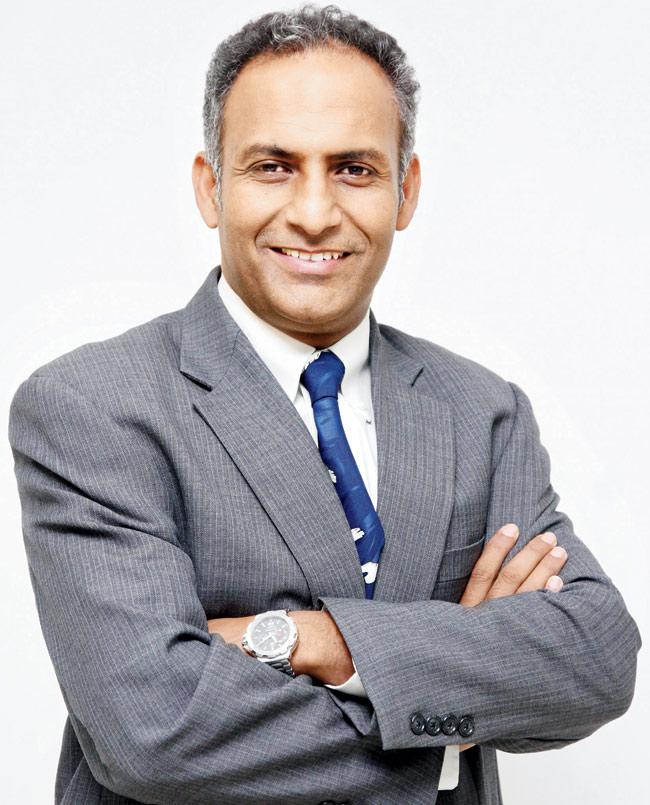What happens when a quintessential corporate guy lands up in a Jharkhand jail on false charges? For one, it leads to a book deal. Kareena Gianani speaks to Chetan Mahajan, whose first non-fiction book describes life in Bokaro prison

Chetan Mahajanu00c3u00a2u00c2u0080u00c2u0099s book, The Bad Boys of Bokaro Jail, chronicles his days in prison
Until December 2012, Chetan Mahajan’s life story ran the course one expects of a quintessential US-returned corporate guy armed with a double MBA — it involved a high-flying career, the risks of launching start-ups and the thrill of running marathons.
ADVERTISEMENT

Chetan Mahajan’s book, The Bad Boys of Bokaro Jail, chronicles his days in prison
But today, if Mahajan were to recount personal history, it would contain stories of a sensational police arrest, undertrials languishing in Bokaro Jail where the most ‘privileged’ inmate must live with the most hardened criminals who run the world inside and out.
And of course there’d be a book about it all.
“It started with some parents being agitated at the state of affairs at the coaching class I was heading, and it blew up before I could blink. The next thing I knew — I was sleeping on the table at Bokaro’s police station, only to be taken to jail the day after,” says Mahajan, CEO of HCL Learning in Gurgaon.
In September 2012, Mahajan joined Everonn, a Chennai-based company which also ran Toppers, an IT coaching class in Bokaro, Jharkhand. Three months later, five of its teachers left the company and irate parents demanded that the company return the fee. Mahajan flew from Gurgaon to Bokaro to take control of the situation. A day later, the parents came back with cops who arrested Mahajan as he was the company’s only representative in Bokaro. Mahajan was in jail for a month and began writing a book, The Bad Boys of Bokaro Jail, on his experiences, published by Penguin.
“We watch and read many things about prison life, but nothing prepares you for the ways in which inmates and cops run them,” says Mahajan. Minutes after he was put behind bars, he was allowed to make calls from a cell phone and asked to cough up R12,000 if he wanted more privileges. Depending on the amount he could arrange for, a television set, a bed and other comforts could have been his. Mahajan gathered that the most comfortable cell, Ward 9, was also home to the most hardened criminals at Bokaro. “They ran the world inside and outside the prison walls. I refused the offer to live there. It was too intimidating,” he admits.
The cells in prison were nothing like what he saw in films, says Mahajan with a wan smile. “They were more like large halls, housing 25 inmates, with a toilet at one end and images of gods on another.”
Mahajan says he began writing to keep a semblance of normalcy in life, much like he began arranging flowers in his cell or running outside. “Of course, it had a lot of angst and lament at first, but then, gradually, I began writing about the systems and people around me. The book isn’t about me at all. It is about life inside Bokaro as seen through the eyes of one of its inmates.”
It wasn’t the system’s corruption which changed Mahajan, but the shifts in perspective once behind bars. “You begin doing and thinking about things in ways you didn’t know you were capable of — for instance, I wouldn’t give second chances to a man convicted of domestic violence in the ‘real’ world. But in there, my ‘best friends’ were accused of murdering their wives over dowry. I didn’t have a choice, and I couldn’t judge everything that came my way because, at the end of the day, we were undertrials.”
Mahajan, an atheist, found himself getting spiritual once inside the jail. “An inmate would speak of god and humanity, while another tantrik told me perfectly true incidents about my family, and I found myself listening.” He also began translating English documents for the inmates and doling out advice about which engineering classes an inmate’s son could join.
In January 2012, Mahajan was out of prison and in March that year, the High Court quashed the case against him, too. But Mahajan had changed, in more ways than he realised. “People looked at me differently and I knew some stigma was still attached to my name. But what changed more is how such an incident really makes you sit down and weigh your priorities. I never thought I’d entertain the thought of quitting my corporate life, but now I do think about it.”
The biggest change, however, is Mahajan’s ideas of second chances. “I definitely wouldn’t write someone off as easily as I did before. And honestly, I was the kind of guy who only understood one way of life — the educated, urban class. But now, say I meet someone who doesn’t know his birthday, or hasn’t lived a life similar to mine, I am not that judgmental. I think I understand better.”
 Subscribe today by clicking the link and stay updated with the latest news!" Click here!
Subscribe today by clicking the link and stay updated with the latest news!" Click here!






